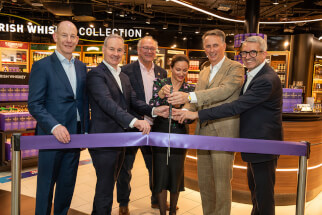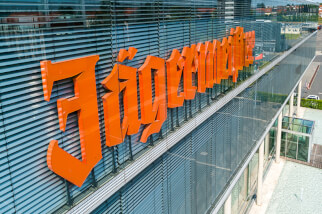Nuno Amaral on ARI’s strategy & sales
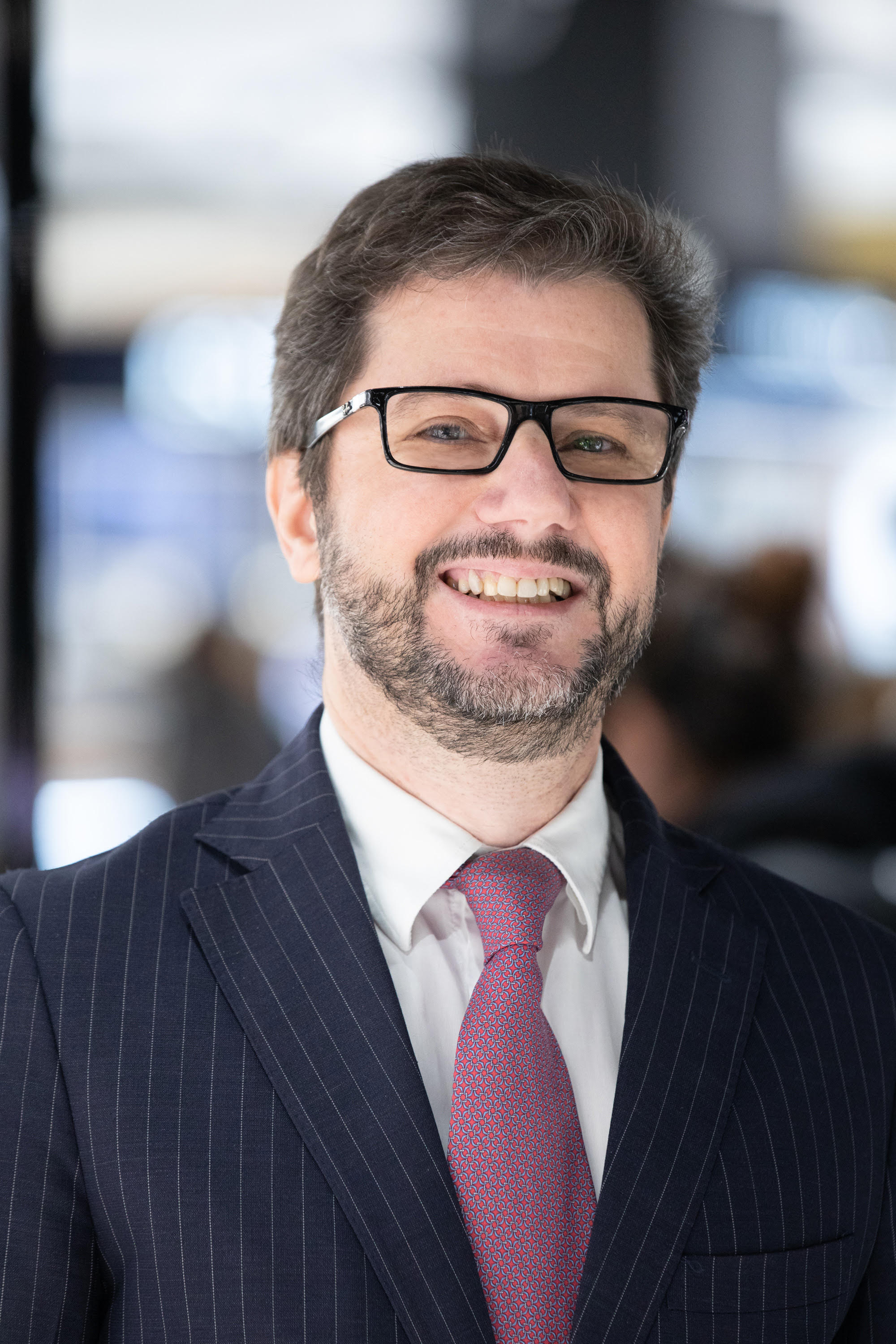
Nuno Amaral, Chief Operations and Business Development Officer, Aer Rianta International
Nuno Amaral, Chief Operations and Business Development Officer, Aer Rianta International (ARI) believes people are truly longing to begin traveling again, and that they do not have undue fear of doing so. He says: “If governments start relaxing the measures a little bit, there will be a sudden spike in air travel. One of the things we were worried about at the beginning of this pandemic last year was will people be afraid of getting on a plane? Will they be fearful and just stay at home cocooning? I think people have moved on from that. They are really keen to travel, provided governments don’t make travel very expensive or restricted because you have to quarantine, or you have to provide PCR tests, as that all adds to the cost of the holiday. However, if governments start opening up, there will be an explosion of traffic, I hope.”
While this may be the case for tourist travel, Amaral admits business travel is another matter. “Business is going to take a little bit longer because companies have incorporated new ways of doing things, but for leisure travel or visiting friends and relatives, I think it is going to be a very quick recovery. I’m not saying back to 2019 levels, but I think it will be a spike, hopefully, and then a steady recovery over the next three years or so.”
Airline safety
Amaral agrees with recent assessments that air travel is safe. “The airlines are putting a lot of measures in place,” he says. “Etihad has come out with a campaign that all their staff are vaccinated, the cabin crew are vaccinated, and explaining how they are treating everyone onboard, the service, and the airports as well.”
While air travel is safe, he says the next step is ending government restrictions. “People feel safe, as safe as they will probably ever feel, but the limiting factor right now is all of these restrictions. Hopefully governments will start relaxing them. Countries that rely on tourism over the summer will do this more quickly than others — those in the south of Europe — Spain, Italy, Greece, Portugal. I think there will be pressure to relax measures because they thrive on tourism.” Amaral says, adding: “For example, in Dubai and the UAE, they did attract tourism because they relaxed the measures and there was a huge influx of people traveling to Dubai over the Christmas period. I think there’s a lot of pent-up demand. Hopefully, we’ll get out of this sooner rather than later.”
Passenger spend
In terms of overall sales, Amaral says that across the entire company sales are about 20-30% of those 2019. “It’s still pretty low,” says Amaral. “Some of our operations are severely affected, like in Canada, where there are a lot of restrictions. Normally, at this time of year in Canada, people would be flying a lot to Mexico and the Caribbean, and that has stopped. Then we have operations in New Zealand, where borders are closed.”
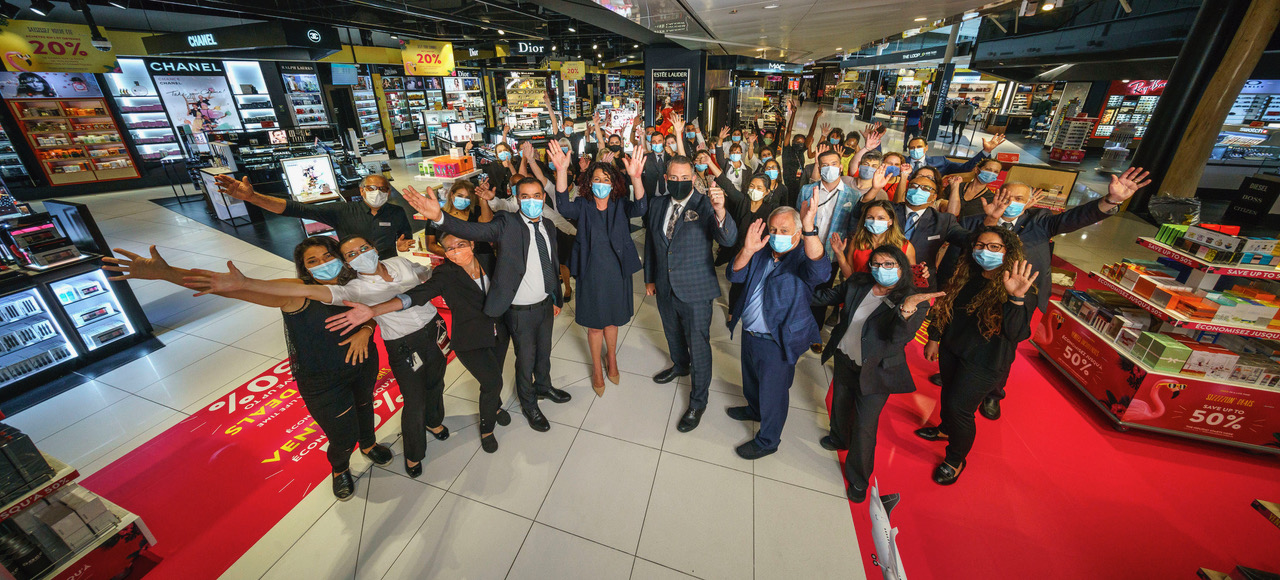
Each day, ARI Canadian staff is given a packet containing two masks, hand sanitizer and gloves, to help keep themselves and travelers safe
Though restrictions in Europe are not as severe as in Canada or New Zealand, Amaral says ARI stores in Europe are also struggling. “The Middle East seems to be the region that is recovering fastest for us,” he says. “We also see some good results in India. In terms of average spend, we are seeing growth. We have excellent safety measures and practices in our stores to mitigate passenger concerns and barriers to shop, and our retail teams have mastered how to best engage with customers in this ‘new normal’, however, I do think it is also a mathematical effect rather than customer behavior. The passenger profile travelling currently is more closely aligned with our true shopper profile. While we are seeing higher spend than before, with only 20-30% of the travelers we used to have, we don’t have a representative sample yet.”
Promotions
Amaral says passengers are purchasing pretty much the same items as before, though not necessarily the same way. “We have adapted a few things on our shop floor, like service. But sampling, spraying, makeup and all the things that we used to do that involve human interaction are difficult at the moment because of all the restrictions. That limits the service we are providing, but we are trying to adapt and the brands are trying to adapt.”
He says the key driver has been promotions. “We are doing a lot of pricing promotions, which deliver value to our customers and in turn, to generate sales. Retailers are focusing on cash flow at the moment with these passenger levels and these sales levels. Whilst we do have a strong balance sheet, cash-flow is currently top of mind.”
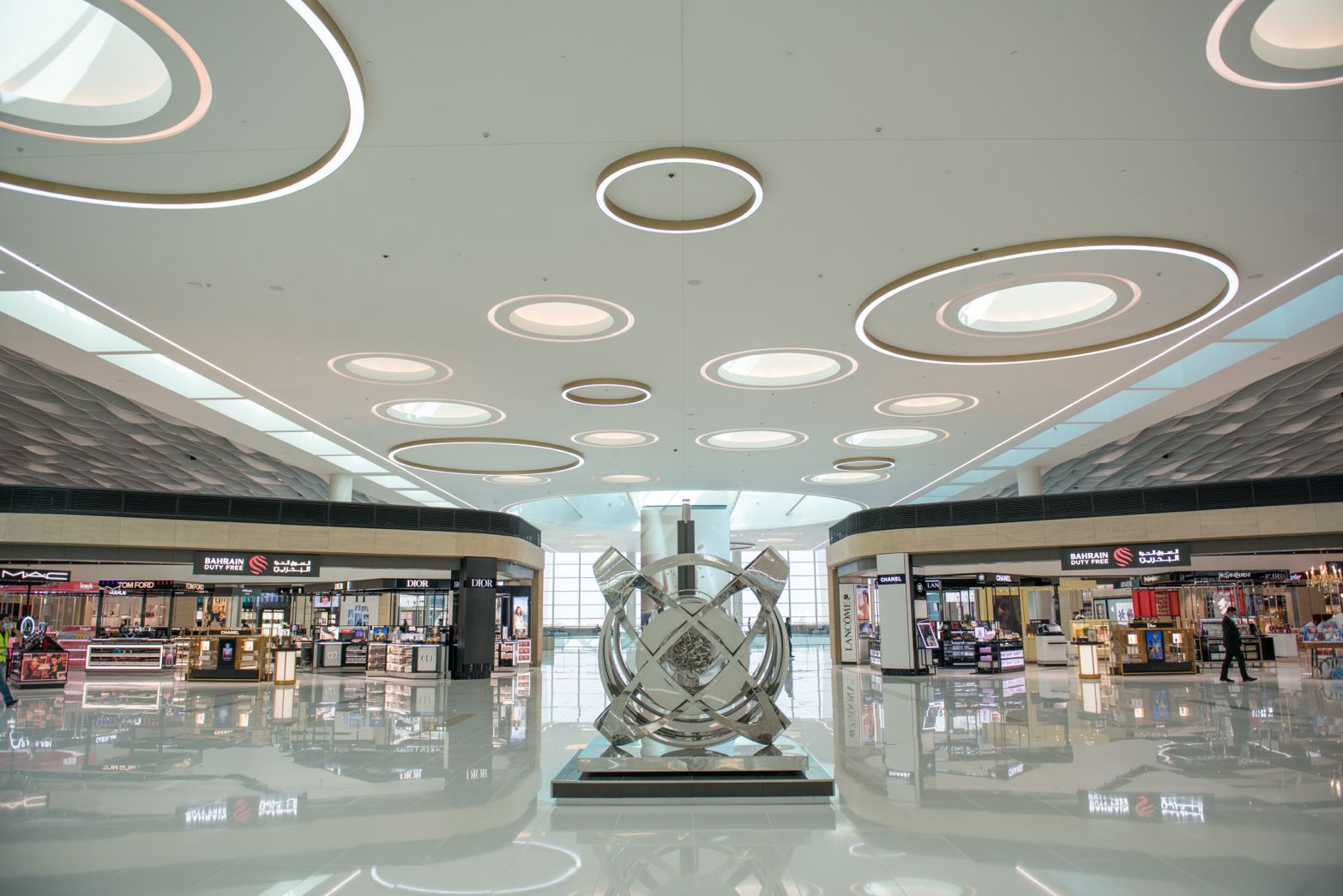
Amaral confirms the Middle East is picking up at a better rate than other regions. He says Bahrain is doing well, and that the airport terminal experience is “fantastic,” with high ceilings, plenty of windows and sunlight
Partner cooperation
Last year, ARI had some excellent results in managing finances during such a challenging time, through a combination of internal measures and co-operation with suppliers and airports. Amaral states that the vast majority of vendors were very helpful. “They helped us run down our inventory through several initiatives, from return-to-vendors to sponsoring or funding of promotions to facilitating staff sales. The whole industry has come together. With a few exceptions, retailers and suppliers and airports worked collaboratively to solve problems. We have worked extensively with airports to agree on financial relief packages that were fundamental to help us through the pandemic”. Airports also helped stores to sell stock by such means as finding spaces for landside shops to create an alternative revenue stream, or allowing the option of having pop-up shops in domestic terminals, which was especially helpful as domestic travel is recovering more quickly than international travel.
Changed relationship
The relationship between landlords and retailers changed last year, says Amaral. “There was a more equitable sharing of pain than would have happened in a normal year. Airports understood that retailers had huge commitments in terms of MAGs, contractual commitments, and that we needed to do something different. The risk profile needed to change, and last year and this year this has happened. The big question is whether that’s going to last or if the airports will just go back to the old way of doing things.”
It’s no secret that operators as a whole believe the model needs to change going forward, and Amaral is no exception. “There needs to be a different risk-balancing profile, but also we will need to see how it evolves. I think it’s too soon to say how things will pan out. Last year people were concentrating on trying to stabilize the ship.” He says what would have been new contractual arrangements did not occur as they normally would; airports decided not to launch tenders in this difficult environment but instead simply extended contracts while waiting for more clarity on how things might pan out and get to a place where they can better assess the market.
Amaral says for ARI the perfect model is one where the risk is shared more evenly than it has been in the past. Standard contracts have certain guarantees such as MAGs. The retailers are locked into a contract for several years with no exit mechanism, no renegotiation mechanism, and often with no force majeure clause. He says: “Airports need to have their share of the pie. They provide the infrastructure, they provide us with passengers, and obviously they need to be rewarded for that. That needs to be rewarded and profits should be shared. It’s more about the risk profile of the contracts, that’s what needs to change.”
New stores
Amaral confirms the Middle East is picking up at a better rate than other regions. He says Bahrain is doing well, and that the airport terminal experience is “fantastic,” with high ceilings, plenty of windows and sunlight. “It’s a massive change. It’s difficult to assess the full potential because of low passenger numbers, but the experience is great. We opened on January 28,” he says. “The opening was subdued because of current conditions, held with only the airport and local authorities. Richard Grey is CEO of the Middle East, and the execution of both his and Basam Alwardi’s (CEO of Bahrain Duty Free) teams is wonderful. The retail offer has increased substantially in terms of the core categories and also in terms of fashion and accessories (pictured below). We have new standalone shops there, that we didn’t have before, such as the official Apple store.”
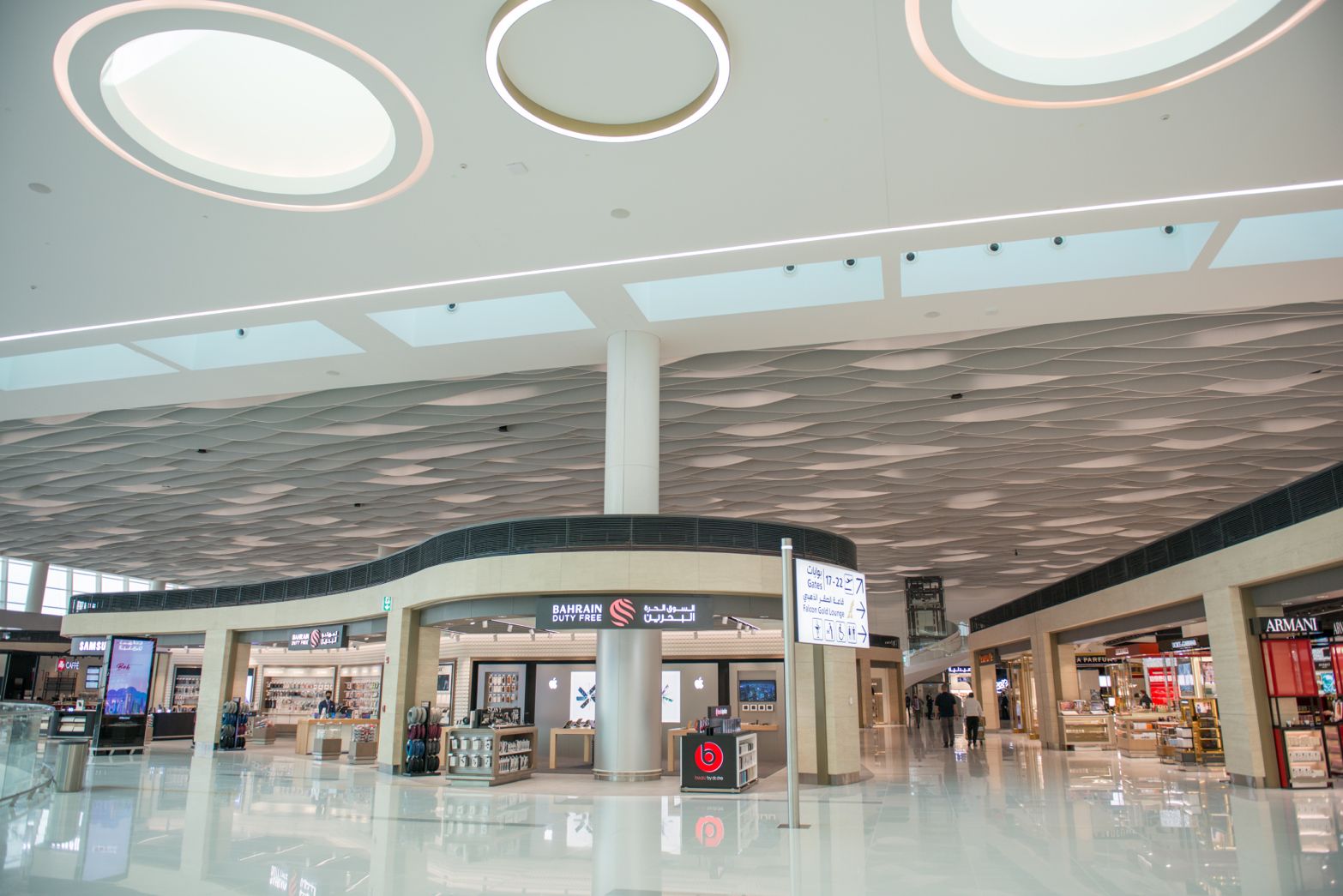
ARI’s new shop in Larnaca, Cyprus, was unveiled in August 2020
While Amaral has not been able to visit as many operations as he would in a normal year, he did manage to visit ARI’s new shop in Larnaca, Cyprus, shortly after it was finished in August. Larnaca had a full terminal redevelopment and the F&B also changed. In addition to its retail presence, ARI is part of joint ventures that manages the F&B offer at that airport. “Together with the airport, we redesigned the whole terminal in terms of passenger flow and the design of the walkthrough shop. This took about two years to complete. It looks amazing and offers a wonderful customer experience.”
Testing and samples
Few realities of retail changes are as apparent as the lack of testers, which have up to now been standard in fragrance sales. Companies have been finding workarounds, but for ARI extra cleaning and service protocols are key. “In some locations we have started having testers with the necessary hygiene protocols in place,” says Amaral. “We have all of these protocols in place and we work together with the brands to try to provide a safe environment for customers.”
He believes people will now be more open to picking things up because people are in the habit of carrying hand sanitizer. “It’s not only about the confidence of the customer, but also about our team being made aware that we’re putting measures in place to protect them as well,” he says. “It’s still a learning experience. How can we provide service and approach people if we have to be two meters apart? People still like human interaction, the human touch, and our retail teams are fully versed in how to do this successfully, from a distance.”
The digital experience
ARI launched a new Click & Collect website in Auckland and Canada last year, and Amaral says it has become very clear that an acceleration of inter-connectivity and e-commerce websites is at hand. ARI is working hard on this, though he says travel retail doesn’t have the same threats as downtown retailers, as passengers have to be physically present at the airport. “It’s not that e-commerce will replace bricks-and-mortar in airports, though that’s probably happening to a lot of downtown retailers as we’ve seen during the pandemic,” he says. “People go online, they choose what they want, it’s delivered to their home and if they don’t like it they return it. But they actually never have to set foot in the store. In our case, as long as people have to travel, there will be room for retail.”
That distinction made clear, he says all the same ARI needs to be more relevant with its digital presence. “Customers are using the e-commerce platforms to prepare and anticipate their travel journey. Our websites need to be integrated, and we need to have the same offer in our shops as we have on our website. We are taking a lot of steps with the brands themselves, especially in perfumes and cosmetics and now offer over 90% of our beauty range online in some markets. They are very prescriptive about how they are displayed online and they have very clear guidelines. We are doing a lot of work on the quality of the website platforms used across the estate, and also how we work with brands.”
Digital marketing
As Amaral reminds us, ARI stores are at airports, so targeting customers online can be a challenge. “We have had a lot of success in communicating with passengers pre-travel, with social media, with influencers, and creating effective marketing campaigns. In the vast majority of places we can’t do home delivery because of customs regulations. We still require passengers to come through the airport, but we have a lot of ideas on how we can dial this up.”
ARI management is taking a good look at what has changed during this pandemic, including what has changed with the customers. “We are defining our future customer value proposition. We’ve put together workstreams internally to develop what we believe should be our customer value proposition,” he says. “Obviously convenience is key and is one area. We have a workstream dedicated to convenience, digital and omni-channel, and a lot of ideas are coming out of there, but we need to trial them first. The difficulty we have now is: where do we try them? Do we have significant passengers that are representative of the future economics, or not?”
Business development continues
Amaral confirms that he is continuing to look at opportunities around the world; he has been in charge of business development since January in addition to operations. “There are some opportunities at the moment. As I said, we’re looking at how we balance the risk. We are committed to growing and looking for opportunities, either on our own or with our partners around the world. We believe the fundamentals of the industry will not have changed in the future once this stabilizes. Travel retail is not dead, so there are definite opportunities for growth and we must continue to look at them.” The company is tending to focus on two regions, these being Asia Pacific and North America.
Sustainability
As an industry, sustainability has been becoming increasingly important and never more so than during the pandemic. Amaral says ARI is dialing up its sustainability agenda. “We are now revising our ESG strategy that we’ll be issuing and rolling out soon, probably next quarter," he says. “We believe it’s the right time — customers are becoming savvier and more demanding on this, so we need to continue moving ahead. So we are driving that agenda.”
For ARI, sustainability means more than just the environment, though that is certainly a major aspect. “Our focus includes people and local communities — internally as well, with our staff and their wellbeing — diversity and inclusion. It’s not just about the environment. We have three key pillars in our ESG strategy: People, Planet and Product.”
ARI’s overarching sustainability framework contains everything from diversity and inclusion to working with communities, CSR, working with airports, reducing its carbon footprint, having sustainable shops and reducing packaging. “We are also working with suppliers to reduce packaging and waste in addition to ethical sourcing and working with food suppliers. We have vegan products; we have sustainable farming products. We are working with local suppliers and developing their SME,” Amaral says.
“We talk about 'sustainability' in an overarching context, for everything that we do in terms of being a sustainable and attractive business for our employees, for our airports, for our suppliers, and for our customers.”



